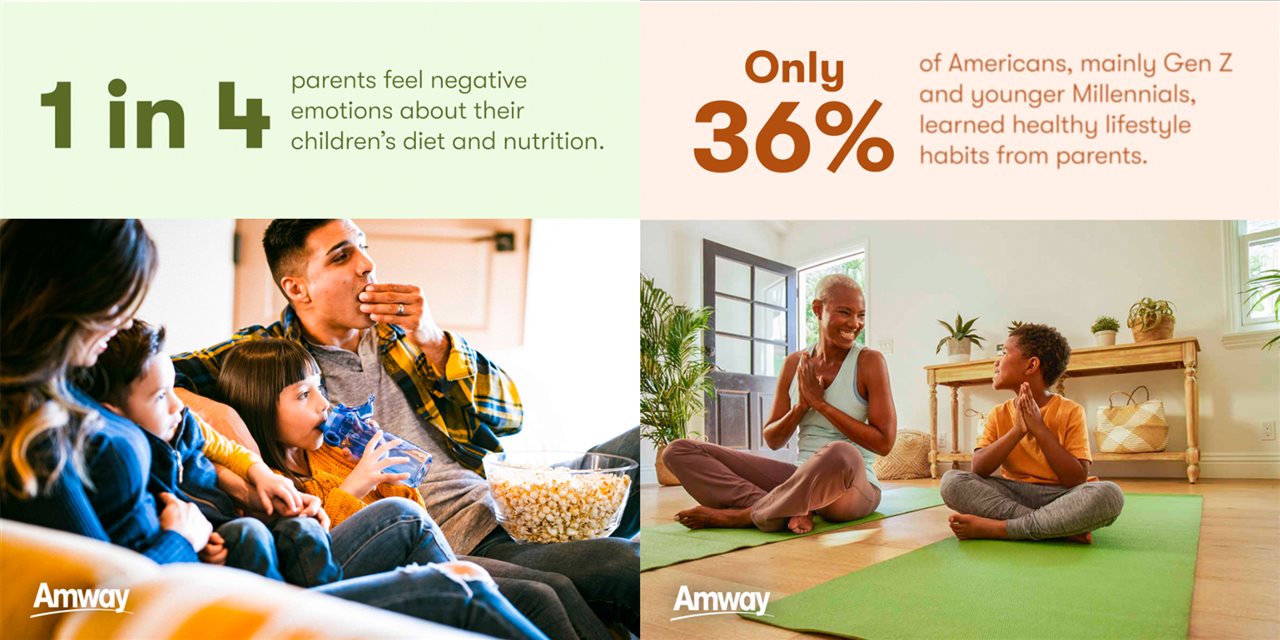3 reasons younger Americans have an easier time maintaining healthy habits
Posted: November 12, 2024 | Word Count: 575

Most parents agree that it's important for children to establish healthy habits before they turn 18 years old. Building a strong foundation and taking a preventive approach to health early on will help people avoid illness and improve our healthspan, or the number of years spent in good health.
Simple, right?
Well, findings from Amway's 2024 "Habits and Healthspan" survey of U.S. adults reveal that different generations have varying success in long-term habit formation.
Overall, only 29% of adults carried over healthy habits learned from their childhood.
- Within this group, 46% of 18- to 34-year-olds started healthy habits because they learned to do so at a young age, compared to only 31% of those ages 35 to 70.
- A shocking 57% of adults admit they only started healthy habits because their doctor advised them, or because they had health issues already that had to be addressed.
Amway scientists are delving into why different generations have varying degrees of success maintaining healthy habits and are using this survey data to identify the three factors that impact different generations' ability to maintain these behaviors for the long term.

1. The internet and social media are helping you get healthy.
Between the internet and social media, younger generations have access to more health and wellness information from a young age than any generation before them. TikTok, Instagram, Facebook, X. Between these platforms and more, social media hosts a wealth of health and fitness influencers who promote a healthy lifestyle and make information more engaging and relatable.
- 24% of 18- to 24-year-olds were influenced to engage in healthy habits from social media compared to only 9% of 35- to 70-year-olds. There is an even larger drop in older generations (55- to 70-year-olds) where a mere 3% were influenced by social media.
2. Getting by with a little help from your friends.
Having a community of like-minded friends focused on achieving a healthier lifestyle and improving healthspan creates a sense of support and accountability. These communities exist both online and in the real world.
- 33% of Americans aged 18 to 24 engaged in healthy habits thanks to the encouragement of a friend, compared to only 25% of 35- to 70-year-olds.
Together, you can share your goals, experiences and expertise in a collective knowledge pool and encourage long-term habit formation.
3. Financial disparities play a role.
Lower-income households can encounter barriers when it comes to instilling healthy habits in their children.
- 31% of Americans with a household income under $50k learned their healthy habits at a young age compared to 40% of those with a household income over $100k.
There are many reasons why income can impact your ability to teach your family healthy habits early on in life. Healthy food is often more expensive than processed or fast foods, leaving many to opt for the cheaper option as opposed to the healthier choice. These households also may not have access to affordable fitness resources such as organized sports, gym memberships or fitness programs, making it harder for them to afford structured physical activities for their kids.
Putting findings into action
These findings from the Habits and Healthspan survey reflect a generational shift, with younger individuals more likely to have been taught healthy habits. By understanding what factors influence your ability to create and maintain healthy lifestyle behaviors over the course of your life, you can instill these practices in future generations and prevent health issues before they arise.
Includes Multiple Photos


